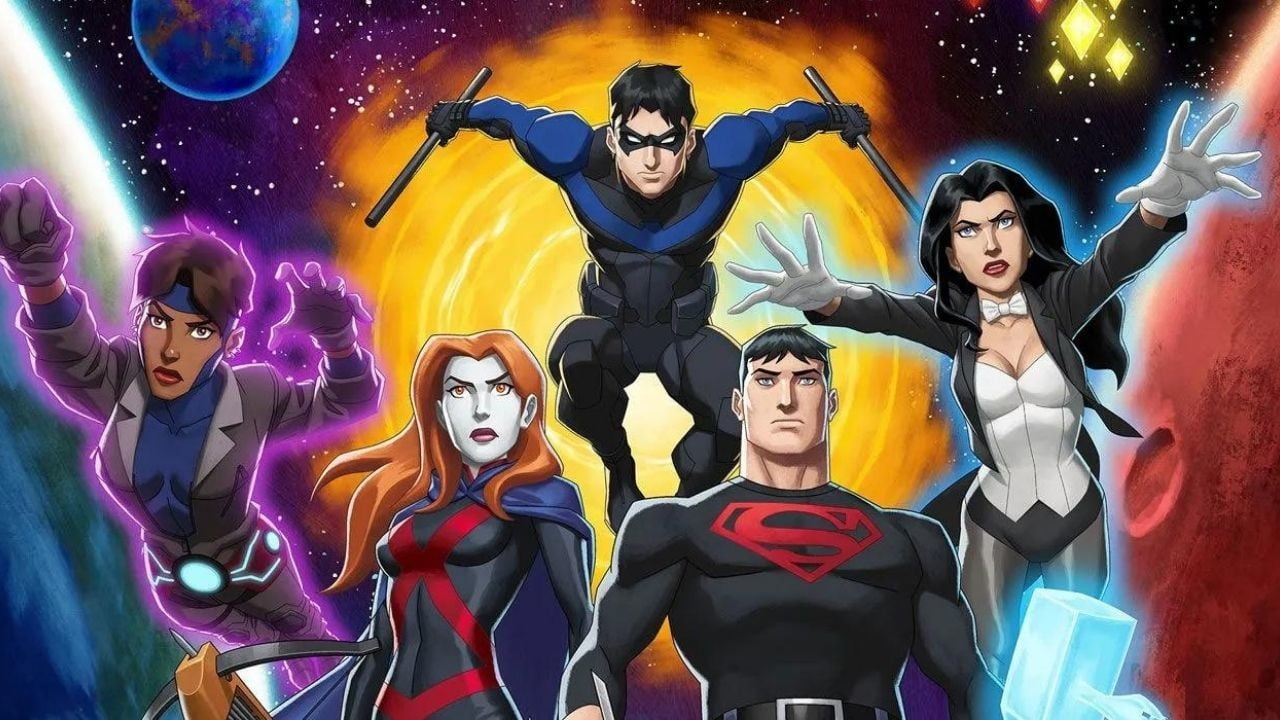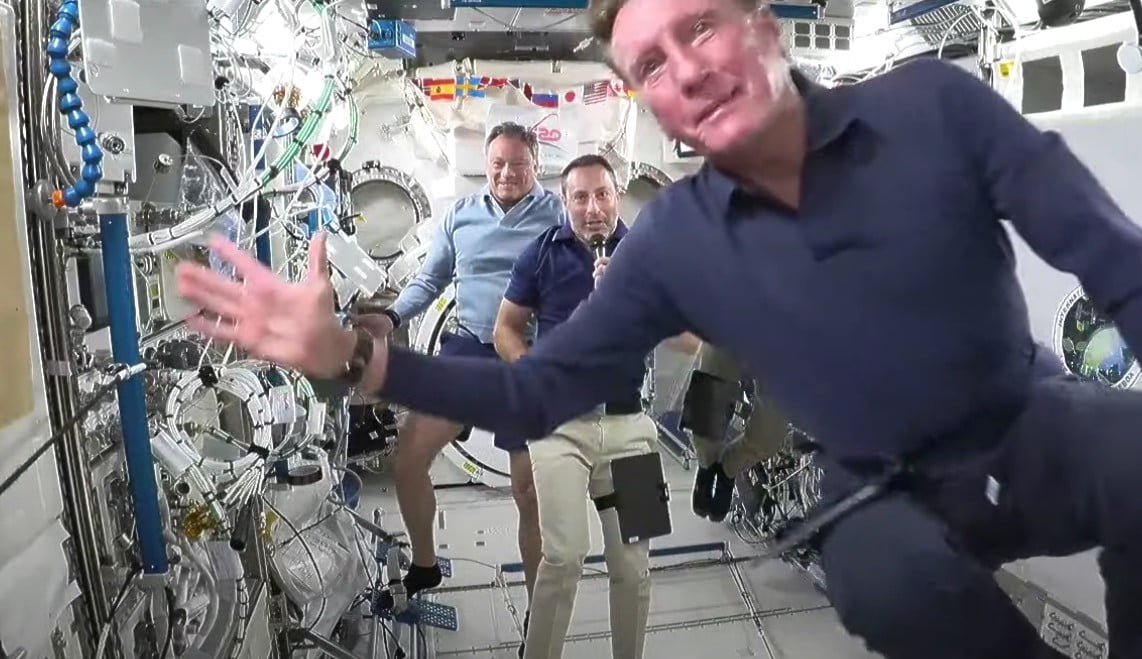It wouldn’t be an overstatement to declare Young Justice the best comic book-based show on television. Now in its fourth season, Young Justice is a rarity in the current streaming world, a show that keeps getting better with every new season, pushing boundaries and breaking down walls instead of hastily trying to keep up with the times. Above all, Young Justice has something no other comic book show has had so far: Ambition. Give or take a WandaVision or a Loki, most of the much-hyped Disney+ shows have felt surprisingly small in scale and safe in intentions. But Young Justice has ambition to spare, perhaps too much for its own good, and isn’t afraid to use it. Indeed, the show views DC Comics for what it is: A massive playground with a large variety of toys to play with and exploit to the fullest.
So why, if the show is such a gem, does it seem to be struggling so much to reach a massive audience? The notoriously secretive HBO Max doesn’t reveal its numbers or participate in the Nielsen rankings, so we have no way of knowing how Young Justice is doing. Still, we have an idea based on the show’s performance on social media and the noise its new episodes make. And while Young Justice doesn’t trend on Twitter, it has a loyal army of devoted followers who use several hashtags supporting the show. Indeed, #SaveEarth16 and #KeepBingingYJ have become rallying cries for fans who want the series to continue.
And Young Justice should continue, not only because it’s the best comic book content has to offer, but because it’s the series we fans deserve.
Falling in love (all over again)
Young Justice uses a mix of established characters and somewhat obscure figures, creating a balance that instantly hooked fans. Heroes like Robin, Kid Flash, and Superboy, beloved characters in the comics, successfully translated into the small screen. On the other hand, the likes of Artemis and Miss Martian were less prominent, allowing the show to introduce and even define them. Young Justice even created its version of Aqualad, a Black young man named Kaldur’ahm, who didn’t resemble his comic book counterpart (and was subsequently eased into DC continuity as the superior version).
The excellent writing did these characters a huge service, as did the voice acting of prominent figures like Jesse McCartney, Danica McKellar, and Nolan North. However, it was the respect that writers gave them that truly elevated and separated the show from others of its kind. Young Justice asked audiences to not only like these heroes, but actually take them seriously. “Don’t call them sidekicks” was the series’ main tagline, a request that captured the show’s essence while simultaneously asking the audience to give the characters a real chance. Even the title skewed away from shows like Teen Titans, opting for a more neutral approach to inexperience.
Unlike other shows of its type, Young Justice chose to focus on the intense psychological and physical setbacks of being a teenage hero. Sure, there was the usual teenage drama — the expected romances, the late-night escapades, the desperate desire for independence — but it all came within the context of heroism. The characters in Young Justice are heroes first and individuals second, for better and worse. There’s a memorable scene in season 1 where, following a particularly traumatic mission, each member of the team has a therapy session with Black Canary. In just a few minutes, the show explores each character’s psyche while revealing more layers to them in a way that most live-action movies fail to do, let alone the average animated Cartoon Network show.
Despite being aimed at younger viewers — at first, at least — Young Justice never took its audience for granted. From the beginning, it delivered a sense of attention and complexity that would make most series envious. There was no room for simplicity in the story, to the point where it seemed like it favored intricacy over a simple, straightforward narrative. And while that approach admittedly doesn’t always work, the show deserves ample praise for always doing more than what audiences expect.
Patience is a virtue
Young Justice understood that to accurately portray the world of DC Comics, it needed to actually use it. Thus, it expanded, covering every corner of the sprawling DC Universe in varying degrees. Season 1 featured many of the usual suspects, but season 2, subtitled Invasion, took it to the next level, including more leading and supporting characters. By the time season 3, Outsiders, came along, the cast was considerable, and the struggle to showcase everyone began.
Because of its ambitious approach and ever-expanding ensemble, Young Justice hasn’t always been consistent with its storytelling. Take Brion Markov’s betrayal at the end of Outsiders. Fans spent an entire season getting acquainted with and rooting for him, so his turn to the dark side was particularly jarring. The season ended by positioning him as either a potential villain or a tragic figure headed for redemption. Yet this payoff still hasn’t arrived, as season 4, Phantoms, has chosen to focus its attentions elsewhere.
Still, after years of following the show, fans know there’s no concern there. Brion will get his time in the spotlight sooner or later. That’s the Young Justice way. Plots get sidelined but never forgotten. Indeed, the show keeps Brion alive by featuring him in background news reports on the TV or by mentioning him in casual conversations.
Yet, it’s easy to see why this approach might not sit well with many viewers, particularly those who expect an instant payoff for their investment. We currently live in the most fast-paced era of our collective existence. News reports come to life and die in less than 24 hours as we move from one shocking event to the next, and the way we consume entertainment reflects this. Take WandaVision, arguably the most successful of the Marvel Disney+ shows. The series went for a slow-burn approach, slowly revealing clues with every new episode. Yet fans somewhat resented its lack of transparency, with many expressing annoyance and desperation every time the show’s infamous “Please stand by” card appeared at the end of each episode. Suddenly, sitting through nine episodes for a satisfying conclusion was too much to ask.
In many ways, audiences have been conditioned to demand answers from their entertainment. Netflix’s bingeing model made them intolerant to the slow burn, something the entertainment industry is slowly understanding. A show like Young Justice, the old-school approach of which favors a single, consistent storyline that extends not only through several episodes but even seasons, might not be the way to go in 2022. But can anyone blame a television show for expecting commitment from its audience?
A familiar chaos
To reflect the world in 2022, Young Justice can’t be only one thing; indeed, it has to be everything. Outsiders introduced more social issues into its story, but Phantoms went all-in with diversity and inclusion. The season has already featured issues like polyamorous and homosexual relationships, non-binary individuals, racism, generational trauma, grief, depression, and autism. Not all of these stories receive the same level of attention — some only get a couple of seconds now and then, while others carry on for several episodes, but they contribute to creating a hectic and even chaotic vibe, one that feels undeniably familiar.
Our world is chaotic, painfully yet beautifully so. People are messy and unique, imperfect in every possible way. The world has a wide range of sensibilities and sexualities, identities and belief systems, so why should audiences expect less from their entertainment? It’s not “woke” for shows and movies to reflect diversity as reality will always be stranger than fiction.
Yet, it’s undeniable that Young Justice loses itself in the chaos by trying to be so many things at once. There’s only so much a 20-minute show can do, and it shouldn’t carry the burden of representation by itself. However, it’s also impossible to expect Young Justice not to try and be everything it can be; to ask anything else from it would be to betray its very essence. The show’s drive, which leads it to dream big and go all-out, is its main strength and, ironically, its biggest weakness.
Respect animation
Animation allows Young Justice to present every possibility in the DC Universe with few limitations. It’s a medium unconstrained by the laws of physics or by the uneven results from blue and green screens, making it the perfect way to bring the cosmic portion of DC to life. So why is it still considered a “lesser” art form by some?
Nearly three weeks ago, the Oscars made several jokes about how kids watch animated movies and parents put up with them. Comments like those ring hollow, especially now, when animation provides some of the highest-quality content on streaming services. Shows like Arcane, Invincible, Castlevania and Harley Quinn keep pushing boundaries and redefining what animation can do. On the big screen, studios like Illumination, Pixar and Ghibli consistently deliver complex films, some of which are nothing short of masterpieces. Not a single person can look at Spirited Away or Wall-E and objectively declare them “lesser” than any other film.
Recently, animation heavy hitters Phil Lord and Christopher Miller wrote a guest column for Variety calling for Hollywood to “elevate, not diminish” animation. It’s inconceivable that, in 2022, animation is still seen as a genre unworthy of respect, especially when shows like Young Justice are leading the charge when it comes to representation, diversity, and nuanced storytelling. Indeed, Young Justice offers more complexity and ambition in one episode than the average DC big-screen effort, give or take The Batman. The show is far more daring, creative, compelling, and thrilling than most entries on the DCEU, yet receives half of the attention from audiences and Warner Bros.
An uncertain future
Young Justice‘s influence spreads above animation or television. Kaldur’ahm made such an impression that he quickly became part of the mainstream DC comics continuity. Recently, HBO Max announced a live-action Aqualad series, inspired by Kaldur and based on the graphic novel You Brought Me the Ocean. Young Justice also has arguably the best adaptations of Nightwing and Superboy while elevating characters like Tigress and Miss Martian into the big leagues.
Still, for all its successes, the future is uncertain for Young Justice. Co-creator Greg Weisman has been vocal on Twitter about the lack of certainty for a fifth season, and HBO Max’s silence is telling. But in a time when DC is all over the place, losing Young Justice would be particularly tragic. No other DC property is doing what Young Justice does, partly because no one seems willing or even interested in dealing with the same subjects.
Critics of the show love to point out its many flaws. Indeed, Young Justice isn’t perfect; it’s far too curious and inconsistent to come anywhere near perfection. However, we who follow the show will take its unashamed and messy ambition over the same old boring storytelling we’re used to seeing from DC. Young Justice‘s reach often exceeds its grasp, but it will never stop trying, and that’s more than most shows can say.
The DC fandom is fractured and divided, but in the end, we all want the same thing: Quality content that honors the characters we love. Young Justice has nothing but love for its characters, caring so much that it keeps pushing them to become more than they were. The show is imperfect, restless, meaningful, curious, often exasperating, but always compelling. Still, its limitations might be too much for some, and its willingness to present an accurate portrayal of the world will earn it considerable backlash; it already has.
And yet, Young Justice is the best DC content we have. Like the comics that inspired it, the show leads, not follows. It innovates instead of copying. It makes mistakes but rectifies them, falls but always gets up, says the wrong thing while staying earnest. Young Justice is perfectly imperfect. It’s the show DC fans deserve, even if they can’t see it.


